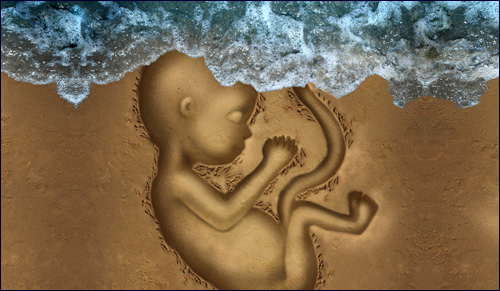 Raise a Glass to Freedom
Raise a Glass to Freedom


3 min read
11 min read
4 min read
5 min read
Grieving the loss of potential new life connected me to mourning the destruction of the Temple.
Another phone call. Another “I’m so sorry, it’s not good news…” Another fertility treatment cycle gone by without success.
This last treatment cycle, (supposed to be the “one last attempt” after many “one last attempt” attempts), was particularly difficult due to the additional stress of traveling away from home. This time we tried receiving treatment in another clinic out of state, with a world renowned doctor who was recommending the latest in assistive reproductive technology (ART). So many tears, so much anticipation and numerous plans had gone into undertaking this treatment. The lack of success seemed to be magnified in the face of such a herculean effort.
The treatment process, excruciatingly dictated by time, requires patience, prayer and hope. During frequent early morning appointments, we waited patiently. While undergoing procedure after procedure, we prayed. As the final treatment days drew near, we were hopeful. We told ourselves that we just needed to hold on a little longer, and we could be actually holding our new little miracle. Each step of the treatment seemed to be going better that we had hoped.
But it was not meant to be. Again, I was heartbroken and shattered.
I took the loss very hard. I fell into a depression (partially, I later realized, due to the huge amounts of chemical and hormonal imbalances as a result of the residual treatment medications) and felt very despondent about life. We had done everything that we possibly could and still we were waiting for a positive result. I experienced tremendous sadness, pain and grief, as if I was in mourning.
Amidst the cloud of pain, there was also confusion. How can you mourn something that you never had? How can you miss someone that you never met? How can you grieve the loss of a person who never existed?
I was grieving the loss of potential new life. For the child that could have been.
I realized that I was intensely mourning, missing, and grieving the loss of potential new life. For the child that could have been. For the miracle we desperately hoped we would finally experience.
This realization, while not minimizing the pain, helped to label the emotions being experienced. I felt that this characterization of the loss was a step, an important first step, in the recovery process. Instead of a floundering feeling, it was now a more spotlighted feeling of loss. With this mindset, I cried out to God, “Is this how you feel Hashem? You create us and give us so many opportunities to improve ourselves and become more giving, more Godly. But we miss out on possibilities for growth, and You must mourn the loss of our potential.”
Then the Three Weeks began, the time period in the Jewish calendar between the 17th of Tammuz and the 9th of Av, which is an interval of sadness and darkness. We primarily mourn the loss of the two Temples which were destroyed on Tisha B’Av thousands of years ago, as well as the tragedies and atrocities perpetrated against the Jewish nation throughout Jewish history.
This span of 21 days can be a difficult time. A list of can’t do’s, restrictions that limit the happiness in our lives. In the past, I felt that the only way to survive this time period was to lay low and wait it out. Just get through and then be able to return back to “regular” life, without the pressing, heavy, dark feeling of pain and loss.
But the most recent loss of potential life that we experienced transformed my perspective to this time period. I had been so confused about how and why I was mourning for the loss of a child that never was. And it struck me, how can I mourn the loss of the Temple, an experience that I never experienced? I have never encountered the glory, splendor and holiness of the Holy Temple. I never merited seeing the Kohanim completing their sanctified service or heard the Leviim sing their divine songs in the holiest of places. I never glimpsed the awesome sight of all the Jewish people gathering together in unity, with love while they left their homes to convene with God.
In essence, while I never experienced any of it, I was mourning not being able to. Just like I mourn the potential child, I mourn the potential for closeness to God, the elevation of our nation and permanent reunification of the Jewish people with their land, all of which was lost during the Three Weeks. I can cry out in pain, I can sob with sorrow, I can sigh in anguish, for missing out on what could have been.
Expressing grief, loss and sadness during this time period is not just an emotional outlet; it is an opportunity for self-development. This time period can be transformed from a time of loss and discord to a time of harmony and unity through acts of loving kindness, rectifying the terrible sin of sinat chinam, hating others for no significant reason, and the role it has played in the many catastrophes and misfortunes in our lives. A simple smile to someone who you don’t even know at the grocery store, offering someone a ride, a cheery phone call, a thank you note, sharing compliments freely. In this way, our pain and mourning, and God’s “pain and mourning” can be channeled into healing and happiness.
